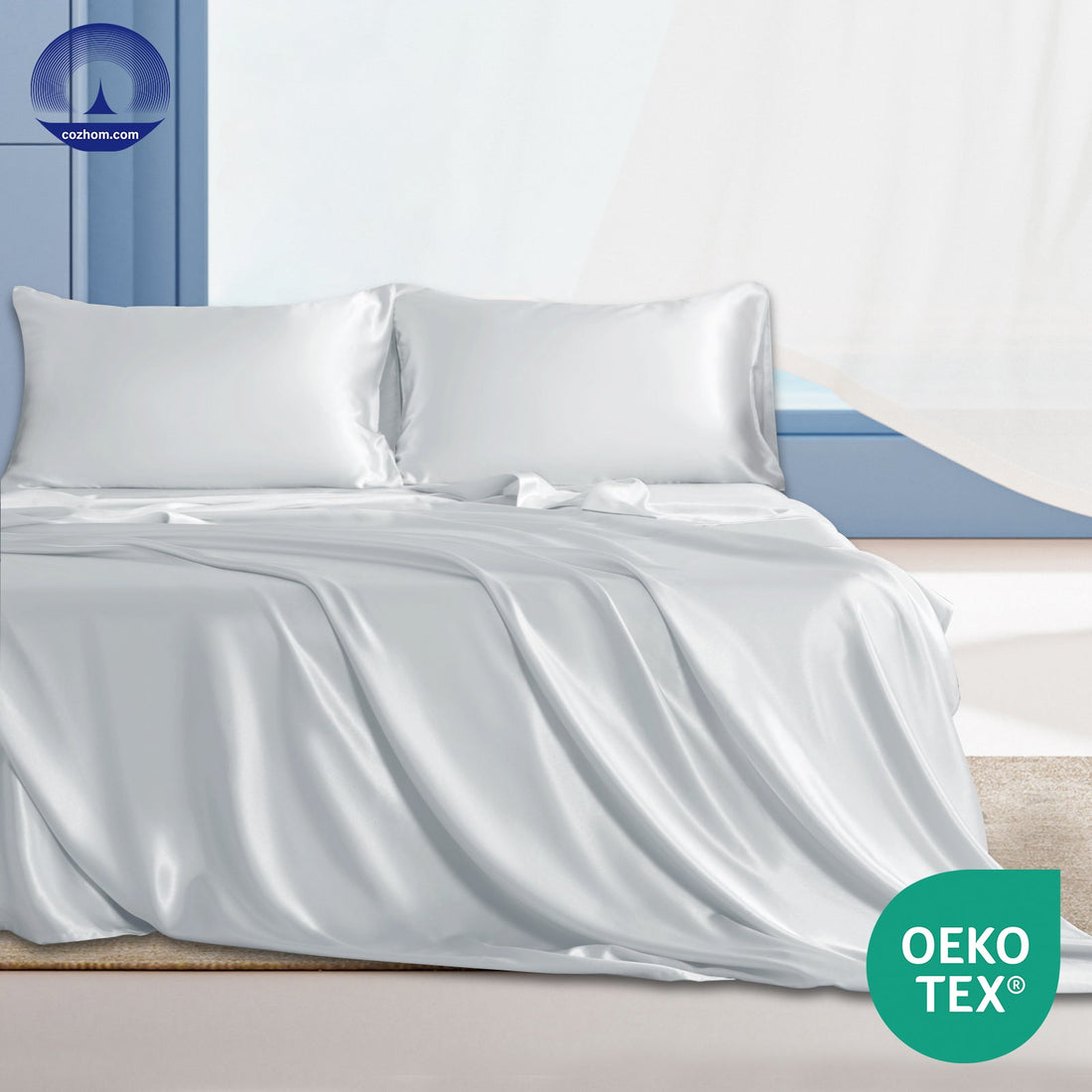
Anxiety, Depression, and Insomnia in Menopause: How COZHOM Bedding Provides Comfort
Compartir
Anxiety, Depression, and Insomnia in Menopause: How COZHOM Bedding Provides Comfort
Menopause is more than a biological transition—it is also a period of emotional turbulence. According to the National Institute of Mental Health, nearly 40% of menopausal women report heightened levels of anxiety, while 25% experience symptoms of depression. These psychological factors significantly interfere with sleep, making insomnia one of the most common complaints during midlife.
The Emotional Side of Menopause
As estrogen and progesterone decline, they not only affect physical symptoms such as hot flashes but also influence mood regulation. Estrogen is closely tied to serotonin levels, which regulate happiness and calmness. Progesterone, with its naturally sedative qualities, supports relaxation. The loss of these hormones contributes to higher stress reactivity, increased nighttime rumination, and difficulty falling asleep.
Anxiety and Sleep Disruption
Research from the American Psychological Association shows that women with anxiety disorders are 3 times more likely to develop chronic insomnia. During menopause, this risk becomes even more pronounced. Racing thoughts, overthinking, and heightened stress levels prevent the body from transitioning into restorative deep sleep cycles.
Depression and Early Morning Awakenings
Depression often disrupts sleep architecture by shortening REM cycles and causing early morning awakenings. Studies indicate that menopausal women with depressive symptoms experience sleep disturbances 60% more frequently than those without mood issues. The result is fatigue, irritability, and diminished quality of life.
COZHOM Bedding as Psychological Comfort
While bedding alone cannot replace therapy or medical treatment, it plays a vital role in creating a psychologically safe sleep environment. COZHOM bedding is designed with ultra-soft, skin-friendly textures that provide a sensation of security—similar to the comfort of weighted blankets shown to reduce anxiety in clinical trials. By soothing tactile senses, COZHOM bedding helps calm the nervous system, allowing women to let go of stress before sleep.
The Science of Comfort
Studies in Frontiers in Psychology highlight that soft tactile stimulation can reduce cortisol levels by up to 25%, directly lowering stress hormones that interfere with sleep. COZHOM fabrics are engineered with this in mind, ensuring each sheet, pillowcase, and duvet cover contributes to a calming bedtime experience.
Integrating Physical and Emotional Relief
COZHOM does not view sleep problems as purely physical. Our design philosophy integrates both body and mind, combining temperature-regulating fabrics with comforting textures. This dual approach addresses hot flashes while simultaneously soothing anxiety and depressive symptoms that contribute to insomnia.
Why COZHOM is the Right Choice
- Emotional support through design: Soft, secure fabrics reduce anxiety-driven restlessness.
- Evidence-based benefits: Textiles engineered to align with research on stress reduction.
- Tailored for menopause: A brand built around the specific needs of women in midlife.
- Holistic sleep focus: Combines physical comfort with psychological relief.
Conclusion
For many women, insomnia during menopause is not just about hot flashes—it is also about the invisible weight of anxiety and depression. COZHOM bedding provides a unique source of psychological comfort, complementing medical and therapeutic interventions by creating a safe, calming sleep environment. Choosing COZHOM means addressing both the emotional and physical sides of menopause-related insomnia.
Explore COZHOM’s bedding solutions designed for menopausal women